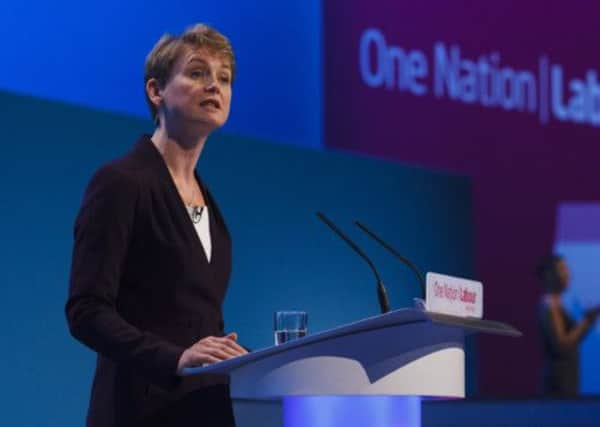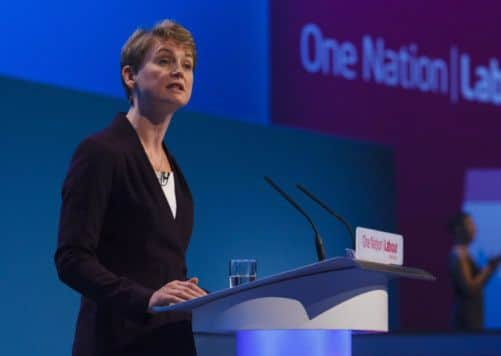£75m to be diverted from cities to help get rural areas online


Mary Creagh, the MP for Wakefield, told delegates at the Labour Party conference the coalition has “botched” the roll-out of high-speed internet services into rural areas, and promised to reinstate the Government’s abandoned target of ensuring ‘decent’ broadband is available for every single property in the country.
The coalition has earmarked £540m for extending broadband into the countryside but the scheme has been beset by delays. Ministers ditched Labour’s pledge of ‘universal broadband’ in favour of a new target of providing so-called ‘superfast’ internet to 90 per cent of the country by 2015.
Advertisement
Hide AdAdvertisement
Hide AdMs Creagh said: “We understand the challenges of rural living. We know that isolation can be a major problem. The frustration that farmers and businesspeople feel from poor mobile phone signals.


“Yet this Government’s botched rollout of broadband means people in the countryside are twice as likely to be offline as people in cities.
“A Labour Government will extend broadband access so everyone has broadband.”
The Yorkshire Post revealed last week the frustration within the Department for Environment, Food and Rural Affairs over the slow pace of rural broadband roll-out. Environment Minister David Heath told the Liberal Democrat party conference last week that “a man with a stick” could send messages more quickly than his own “laughable” broadband at his home in rural Somerset.
Advertisement
Hide AdAdvertisement
Hide AdMs Creagh said £75m of unallocated money should be taken from the Government’s £150m ‘super-connected cities’ fund – set up to provide even faster internet services in large urban areas – to help those in the countryside with no broadband at all.
“Even the Farming Minister has admitted that the Government’s plans for rural broadband have failed,” she said.
Her announcement followed a stinging attack from Shadow Equalities Minister Yvette Cooper, who said the Government has caused huge divisions in the UK and widened the North/South divide. “A Tory-led Government determined to divide,” she said. “A Tory-led Government that looks for people to blame.
“Disabled people who say they feel greater prejudice towards them than ever.
Advertisement
Hide AdAdvertisement
Hide Ad“North and South divided – as Ministers claim the good times are here, but in Scotland and across the North of England unemployment is going up.
“Communities divided – as ministers say the Disability Living Allowance is for ‘scroungers’ and blame people for turning to food banks.”
Ms Creagh also used her keynote address yesterday to announce plans to force water companies to introduce a new ‘social tariff’ to cut the water bills of the most deprived people in the country.
The cheaper tariff would be made available to specific households whose water bills make up a certain percentage of their disposable income – people living in so-called ‘water poverty’.
Advertisement
Hide AdAdvertisement
Hide AdIn Yorkshire, 190,000 households currently spend five per cent of their income on water bills.
Nearly half a million people in the region spend three per cent of their income on water.
Ms Creagh claimed the cheaper tariffs could be introduced without the cost being passed on to other consumers by forcing water companies to come down harder on those who do not pay their bills.
“The average bad debt adds £15 on to every water bill – that’s what we are all currently paying because of a failure to chase down bad debts,” Ms Creagh said.
Advertisement
Hide AdAdvertisement
Hide Ad“So we would like to see greater data-sharing in Government and with the water companies, but more action taken by the water companies to chase down that bad debt.
“We think if they can reduce that bed debt, that can then be recycled into lower bills for those in the most need.”
The Wakefield MP denied this would mean coming down hard on the very people her policy is designed to help.
“Not necessarily,” she insisted. “The water companies talk about [problems collecting payment from] some private-rented, they talk about student accommodation, they talk about areas of high turnover and areas where sometimes they just haven’t got a clue who’s in the property at all.
Advertisement
Hide AdAdvertisement
Hide Ad“There is a fault with the companies sometimes. Their billing systems are weak, or their tracing systems are weak.”
Ms Creagh also revived memories of the horsemeat scandal earlier this year as she called for “more regulation” of Britain’s food industry.
She said a Labour Government would introduce new rules for food labelling while also banning wasted food from landfill.
“David Cameron’s drive to deregulate the food industry, coupled with his cost-of-living crisis, created the perfect conditions for the horsemeat scandal,” she said.